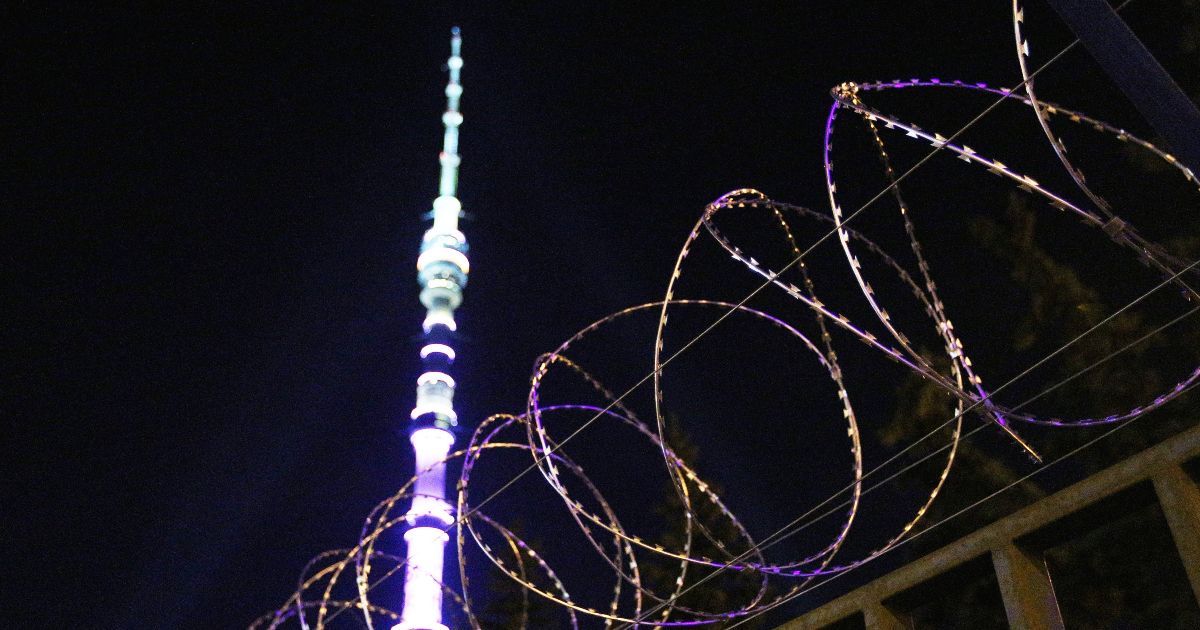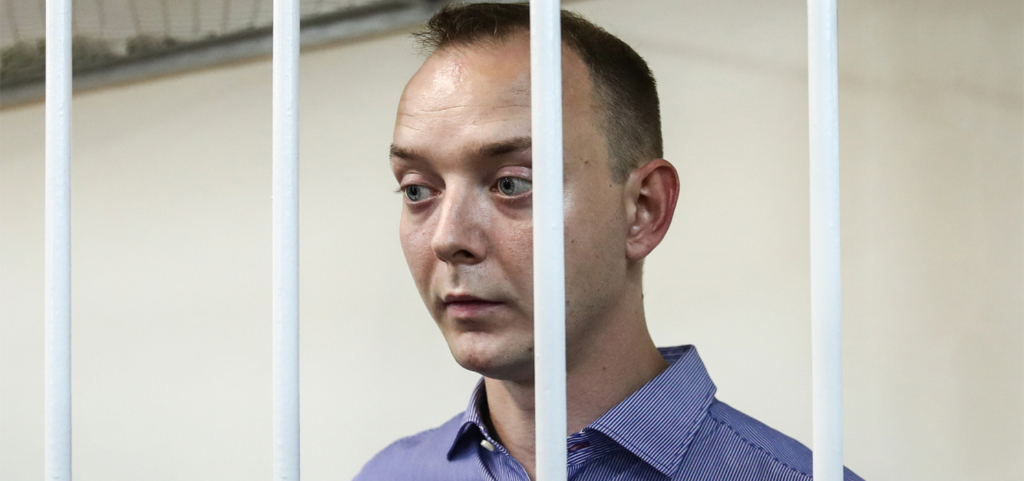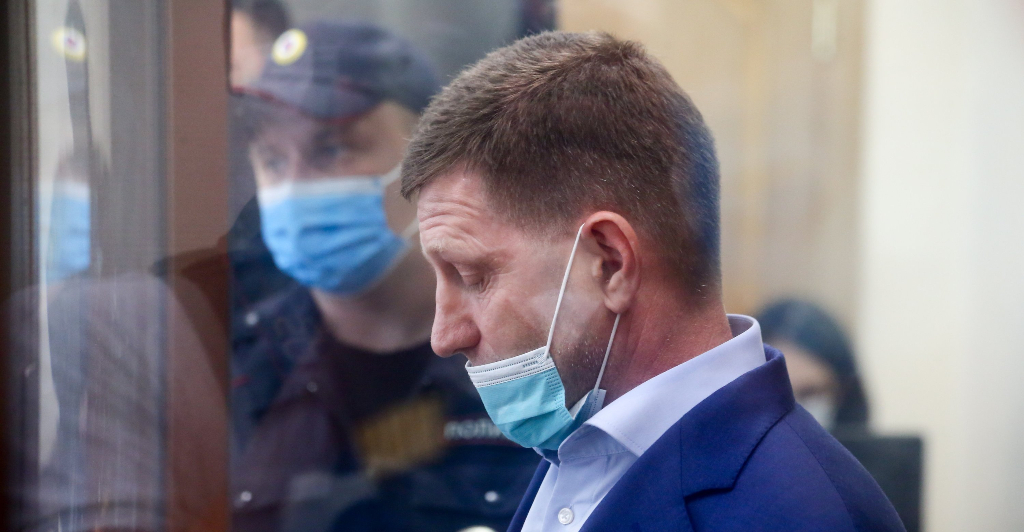
Repression follows referendum
Hello! This week our top story is about a series of high-profile arrests and searches that have followed the recent constitutional referendum. We also look at a record $2 billion environmental fine for mining giant Norilsk Nickel, and messaging app Telegram’s unexpected rapprochement with the Russian authorities.
A week of repression follows constitutional referendum
Many believed there would be a reckoning after Russia’s constitutional referendum, but few expected the authorities to act so quickly, and with such ferocity. In the week since Russians voted to allow Putin to ‘reset’ his presidential term count, two major criminal cases were opened: one into a prominent journalist, the other against one of Russia’s few opposition governors. Other activists and journalists have also been targeted by law enforcement.
Defense industry reporter accused of treason
- Journalist Ivan Safronov, 30, was arrested Tuesday on treason charges. A former reporter at business dailies Kommersant and Vedomosti, Safronov was two months into a job advising the head of Russia’s state-owned space agency, Roscosmos. The maximum sentence for treason in Russia is 20 years in jail.
- A specialist on the defense industry, journalism runs in Safronov’s family. His father, a retired colonel, covered the defense industry for Kommersant until 2007 when he fell from a window while working on an article about illegal arms sales to Iran. Those close to him do not accept it was suicide. His son took over his job at the newspaper.
- Safronov Jr. is accused of collaborating with Czech intelligence and passing information about a Russian arms delivery to an unidentified African country. Prosecutors allege Safronov was recruited in 2012 and divulged secrets “via the internet” in 2017. We know all of this from Safronov’s lawyers: the case will be held behind closed doors.

- There are many questions about the charges, including whether they are related to Safronov’s journalism. His reporting often upset powerful people — for example, his article last year about a delivery of a Sukhoi Su-35 fighter jet to Egypt was deleted (Rus) from Kommersant’s website after apparently being used by the U.S. Secretary of State Mike Pompeo to threaten Egypt with sanctions. He is unlikely to have had access to secrets at Roscosmos: according to official reports, his job did not involve such security clearance. Putin’s press secretary Dmitry Peskov and head of foreign intelligence Sergei Naryshkin both denied that the charges relate to Safronov’s journalism.
- Russian treason law is vague, and can be applied extremely broadly. For example, a sales clerk was sentenced (Rus) to seven years in prison in 2016 for sending a text message to a Georgian friend about tanks she saw passing through the Black Sea city of Sochi. In addition, treason cases often involve (Rus) the worst of Russia’s justice system: presumption of guilt, violation of a defendant’s rights, and falsification of evidence. All such trials are held behind closed doors, making it is impossible to judge the fairness of the hearing.
- Several media outlets spoke out in Safronov’s defense, including The Bell (Rus), and dozens of journalists were arrested at protest pickets. His colleagues describe (Rus) Safronov as an decent, professional and scrupulous journalist.
Governor accused of murder
The governor of Russia’s Far East Khabarovsk region, Sergey Furgal, was arrested Thursday. The initial court hearing for Furgal was also closed to the public. The governor is accused of crimes that supposedly took place many years ago: in this case organizing the murder of his rival businessmen in 2004 and 2005. At this time, Furgal was in a shady business of timber and scrap metal trading; shortly after he became a regional coordinator for the Liberal Democratic political party (a populist organisation that voices opposition while simultaneously working closely with the Kremlin).
Frugal has a murky past that may have included criminal activity, especially considering the nature of his business. However, he was not investigated in relation to the murder up until the moment Kremlin got anxious that elite obedience could be fraying. It certainly did not help that Frugal was elected governor in 2018 on a day when four such opposition figures were elected — a major blow to the Kremlin. Furgal received 66 percent of the vote, more than Putin got in presidential elections in the region six months earlier.

Journalists questioned by police
Pyotr Verzilov, a former member of protest group Pussy Riot and publisher of media outlet Mediazona, was targeted by police even before the referendum. In June, he was questioned about the 2019 opposition protests in Moscow and, on leaving the police precinct, he was attacked in a staged scuffle — and detained for 15 days. He was again questioned (Rus) Tuesday about why he hadn’t informed the authorities about his Canadian passport (the law requires Russians to declare dual citizenship). In a little over a month, Verzilov’s home has been searched eight times and he had to undergo a psychiatric examination. Last year, Verzilov was poisoned in what he believes was an attempt on his life by the security services.
Police also searched the apartments of journalists and activists working for former tycoon Mikhail Khodorkovsky’s Open Russia and MBK Media projects. These raids were formally connected with investigations into Yukos, the oil company once controlled by Khodorkovsky. But Open Russia’s lawyers contended the real reason was an application for a permit for a street demonstration in Moscow to protest the constitutional changes (the application was turned down by City Hall). The lawyers’ version of events is supported by the fact that several of those questioned by police were young children when Yukos was an active oil company.
Why the world should care The ‘yes’ result of the constitutional referendum will do little to stop Putin’s sliding approval ratings, but it is evidently enough to tighten the screws without risking public discontent. The authorities are using this moment to stamp out any sign of dissent, sending a signal to journalists, and reminding even the so-called ‘systemic opposition’ that it is disposable.
Norilsk Nickel hit with largest environmental fine in Russian history
It was a bad week for mining giant Norilsk Nickel. The company’s share price fell 4.2 percent after Russia’s environmental watchdog, Rosprirodnadzor, put the damages from a huge diesel spill at one of the company’s Arctic facilities at $2 billion. Environmental charity Greenpeace said the estimate was fair, but it is almost 15 times higher than what the company expected. If Norilsk Nickel pays, it will be Russia’s largest ever environmental fine.
- The only environmental penalty in Russian history that has come close was (Rus) the $50 billion demanded in 2006 from the foreign-owned companies in the Sakhalin-2 project. But this had clear political overtones and was forgotten when state-owned gas giant Gazprom joined the project on favorable terms.
- In a meeting with Putin after the accident, Norilsk Nickel head and shareholder Vladimir Potanin estimated damages at $141 million, but said he was prepared to pay as much “as will be deemed necessary”. Now, he seems less certain. Norilsk Nickel has announced (Rus) it will dispute the fine. The company claimed the fine does not take account of its efforts to clear up the spill and alleged the amount of spilled oil products has been inflated. Norilsk Nickel might well be successful in evading payment: state-owned Russian Railways was recently able to avoid a fine of 278 billion rubles for polluting water reservoirs near Moscow.
- A spokesperson for Norilsk Nickel’s second largest shareholder, billionaire Oleg Deripaska’s aluminium giant Rusal, called the fine “unexpected” and added that they will want an explanation from Potanin at the next board meeting.
- Shareholders Potanin and Deripaska have already survived one conflict over Norilsk Nickel, and there are fears the oil spill dispute could spark another. Deripaska wants higher dividends, while Potanin wants to lower (Rus) them. Potanin suggested (Rus) after the accident that Norilsk Nickel cap 2020 dividends at $1 billion.
- Norilsk Nickel is one of Russia’s most profitable companies and it definitely has the money to pay the fine: its 2019 net profit was about $6 billion.
Why the world should care The outcome of Norilsk Nickel’s attempts to avoid the fine will set a precedent, and help determine how much other major companies earmark for environmental protection. But it’s very likely Norilsk Nickel will be able to reduce the size of the fine — for example, by receiving credit for funds already spent on the clean-up operation.
Telegram seeks Russia rapprochement amid attack on Apple
It is only two months since Russia unexpectedly lifted its ban on messaging service Telegram. But the company’s vice president this week appeared alongside Russian Prime Minister Mikhail Mishustin — and proposed a crusade against U.S. tech giants Apple and Google.
- Mishustin took part in a panel discussion with IT industry executives Thursday near the city of Kazan, 800 kilometers east of Moscow. It was his first public engagement outside the capital since he fell ill with COVID-19 in May.
- Telegram vice president Ilya Perekopsky’s appearance at the panel was a surprise. Relations between Russian officials and Telegram fell apart in 2014 when Telegram founder Pavel Durov left Russia because he believed “the country is incompatible with internet business”. The only official contact has been correspondence with the Federal Security Service (FSB) in which Durov refused to give the authorities Telegram’s encryption keys. Telegram was then formally banned.
- Perekopsky didn’t mention any of this, instead complaining about Google and Apple. He said that the 30 percent commission developers pay Apple and Google on all transactions within apps stifles development. Apparently, this is much more of an issue than IT sector taxes, which Russia is planning to cut. Perekopsky reminded his audience about European Union antitrust cases against Apple and Google. “There will be no progress in the industry as long as Apple and Google can cheaply swallow companies from eastern Europe with their piles of cash,” he said.
- The same day as Perekopsky’s speech, Durov posted (Rus) an article on Telegram with the headlines “How Apple is killing start-ups around the globe — and how to stop it”. His solution to the problem is to force Apple to install alternative app stores in Russia, which would not take a 30 percent commission.
Why the world should care One can only speculate why Durov suddenly decided to go after Apple’s commission. Perhaps he needs to monetize Telegram after his TON project fell apart. More importantly, there are now many questions about whether Telegram and the Russian authorities are working together.



